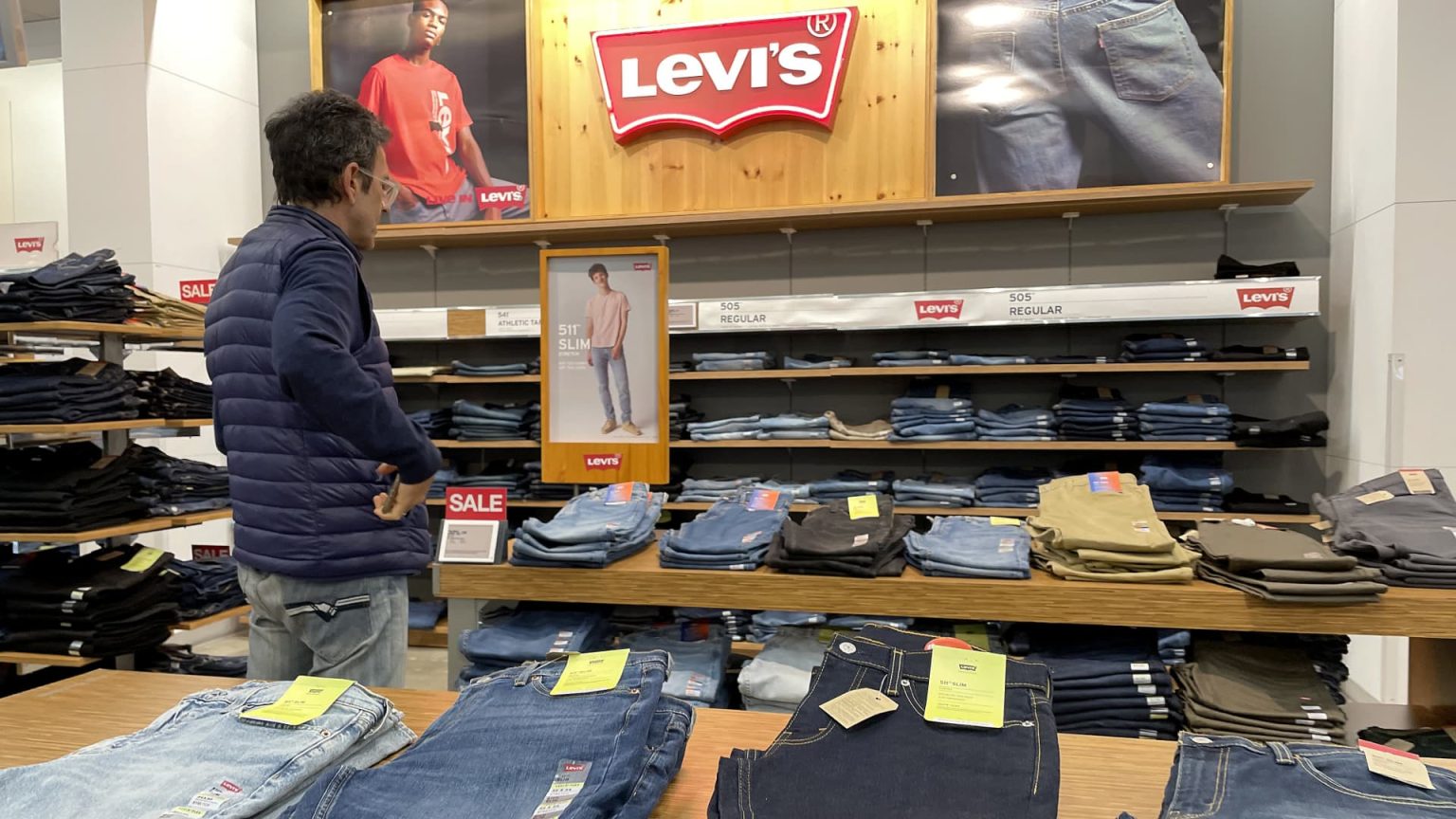Levi Strauss & Co experienced growth in sales for its namesake brand during the fiscal third quarter, but overall revenue was lower than expected, leading to a decline in shares. The company reported earnings per share of 33 cents, which was higher than the anticipated 31 cents, with revenue of $1.52 billion instead of the expected $1.55 billion. Despite the positive performance of its Levi’s brand, the company’s net income was only $20.7 million, a slight increase from the previous year.
Levi’s confirmed its full-year adjusted earnings per share guidance of $1.17 to $1.27, in line with expectations of $1.25. However, the company trimmed its revenue guidance and now predicts a 1% growth, compared to the previous range of 1-3%, leading to a decrease in analysts’ expectations. Levi’s is focusing on improving its margins and reducing volatility in top-line growth by considering the sale of its Dockers brand, which has struggled in recent years.
The Dockers brand, initially introduced by Levi’s as an alternative to denim in 1986, has declined in popularity as khakis have fallen out of fashion. Sales of Dockers were down 15%, while the acquisition Beyond Yoga saw a 19% increase. Levi’s believes that divesting Dockers will improve the company’s overall margins and minimize volatility in growth, allowing both Dockers and Levi’s to operate independently and maximize their value.
Despite challenges with the Dockers brand, Levi’s is making gains through a focus on direct-to-consumer sales, which have increased its profitability. The company’s gross margin grew by 4.4 percentage points, attributed to its direct-selling strategy, lower cotton costs, and improved products. Levi’s is aiming to increase its direct sales to 55% of total revenue, with a current share of 44%, driven by a 10% increase in the direct channel and 16% growth in e-commerce.
Levi’s recent marketing campaigns, including a partnership with Beyoncé, have helped drive sales and brand recognition. Sales in Europe exceeded expectations, but the Americas and Asia saw lower than anticipated revenue. Challenges in China and the Americas, including a cybersecurity breach at a wholesale partner in Mexico, impacted sales. Levi’s remains optimistic about its long-term potential in China and is working to address execution issues in the Americas.
Levi Strauss & Co’s performance in the fiscal third quarter was marked by growth in its Levi’s brand, but challenges with the Dockers brand led to lower overall revenue. The company’s focus on direct-to-consumer sales and marketing partnerships, such as with Beyoncé, have helped drive profitability and brand awareness. Levi’s is considering selling off Dockers to improve margins and minimize growth volatility, while continuing to focus on expanding its direct sales channels and addressing challenges in key markets like China and the Americas.













